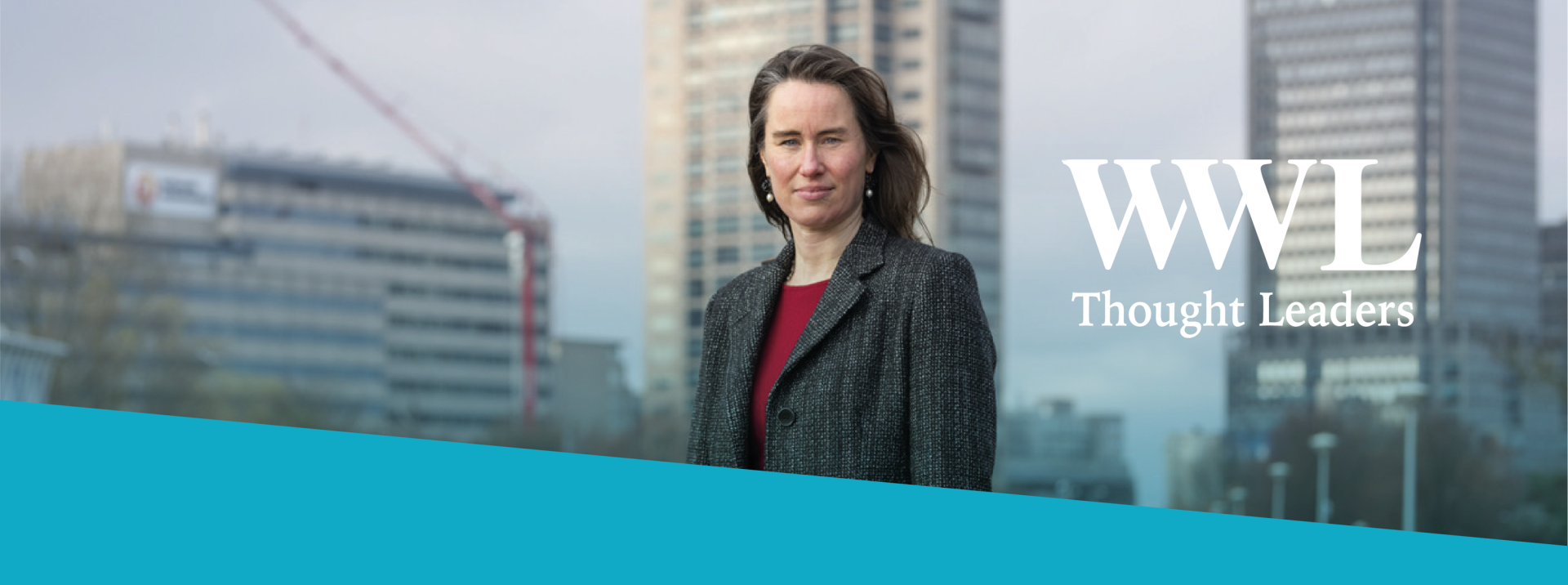
Cathalijne van der Plas ranked by WWL as Thought Leader in Asset Recovery
A wonderful endorsement of our colleague’s reputation in the field of international asset recovery!
The Who's Who Legal (WWL) is a high regarded reference source platform identifying the foremost legal practitioners in multiple areas of business law.
Cathalijne was interviewed by WWL on her most memorable case, on the legal challenges of enforcing foreign court decisions and what makes our firm stand out in the market:
What has been your most memorable case to date and why?
It is one of my first asset recovery cases. The client was a defrauded multinational. Several third-party discovery proceedings were initiated to obtain information with regard to the statements of the bank accounts where the defrauded sums had been transferred to. Requests for prejudgment attachments were granted, and we obtained favourable decisions in the main proceedings against parties who received the defrauded funds. Criminal complaints were lodged. We obtained the criminal file that resulted from the investigation by the police and used the information in the civil proceedings. The public prosecutor started criminal proceedings against the fraudsters. We assisted the client in joining the criminal proceedings as a civil party. The main fraudster has been convicted in three instances and is currently in jail.
I use this case a lot in my courses on asset recovery, because it is a good example of the continuous back and forth between the relevant experts, and the successful combination of civil law and criminal law options in asset recovery cases. This case was also the very beginning of my collaboration with JahaeRaymakers, which ultimately resulted in me joining the firm as a partner.
What skills do lawyers need to effectively coordinate cross-border, multi-jurisdictional asset recovery operations?
The most important one is a strong international network so that you are able to put together a team with the relevant experts for your client. Also key are good communication skills, and it helps a lot if you have a basic understanding of the asset recovery tools available in other jurisdictions. Often time is of the essence, so you have to be able to act quickly.
What are the legal challenges of enforcing foreign court decisions in the Netherlands?
In general, the Dutch enforcement system works well, although at first glance you might think otherwise. If there is no convention pursuant to which the foreign decision qualifies for enforcement in the Netherlands, a foreign judgment cannot be enforced in the Netherlands, even if the decision is susceptible to being recognised in the Netherlands. New proceedings have to be initiated before a Dutch court in order to obtain powers to enforce in the Netherlands. This sounds more drastic than it usually is. In practice, the case will not be reviewed on the merits again. If the foreign decision meets the four recognition requirements established in Dutch case law, the Dutch courts will generally follow the foreign decision.
Has your role as co-chair of the asset tracing and recovery chamber of the Dutch Institute for Financial Crime (IFFC) and fellow of the International Academy of Financial Crime Litigators enhanced your work in private practice?
The IFFC asset tracing and recovery chamber comprises lawyers, forensic accountants, investigators, compliance officers and representatives from financial institutions, tax authorities and the public prosecution service. It explores to what extent cooperation and information exchange between the various bodies in the public and private domain can be improved. This similar to the Academy but that is on an international level, being a collaboration between public and private-sector litigation professionals and the renowned Basel Institute on Governance. Members of the Academy aim to promote worldwide access to solutions in cases of economic crime by sharpening litigation skills and sharing research, experiences and best practices. Apart from the fact that it is interesting and honourable to have a role in both forums, obviously it enhances my practice in many ways.
What makes JahaeRaymakers stand out from its competitors in the market?
The focus of JahaeRaymakers is on risks, reputations and sanctions for business entities and foreign states. Our expertise enables us to identify and pursue multi-jurisdictional asset recovery cases; cases of international bribery and corruption; money laundering and fraud cases; and other financial crimes, from both civil and criminal law perspectives. The combination of civil and criminal law, and public international law and private international law, within one firm is quite unique in the Netherlands.
What are some of the most effective tools available to asset recovery specialists in your jurisdiction during litigation proceedings?
The relative ease with which one can apply for prejudgment attachments is seen by foreign parties as characteristic of the Netherlands. The petition in the majority of cases is decided ex parte after summary investigation, and usually within one or two days of the filing of the petition. The same goes for the application for the seizure of specific documents in order to safeguard them as evidence.
Furthermore, the European Account Preservation Order (EAPO) can be an important tool in asset recovery cases. It grants the power to request information on the debtor’s bank details, and to levy attachments on the debtor’s bank account or accounts in other EU member states (except Denmark).
What advice would you give to practitioners hoping to one day be in your position?
Act creatively and be open-minded. Be prepared to adapt to a world in which developments, opportunities and risks rise and go at high speed. Always be discreet to the outside world and transparent to the client.
Read Cathalijne's full profile at WWL here. Contact Cathalijne here.